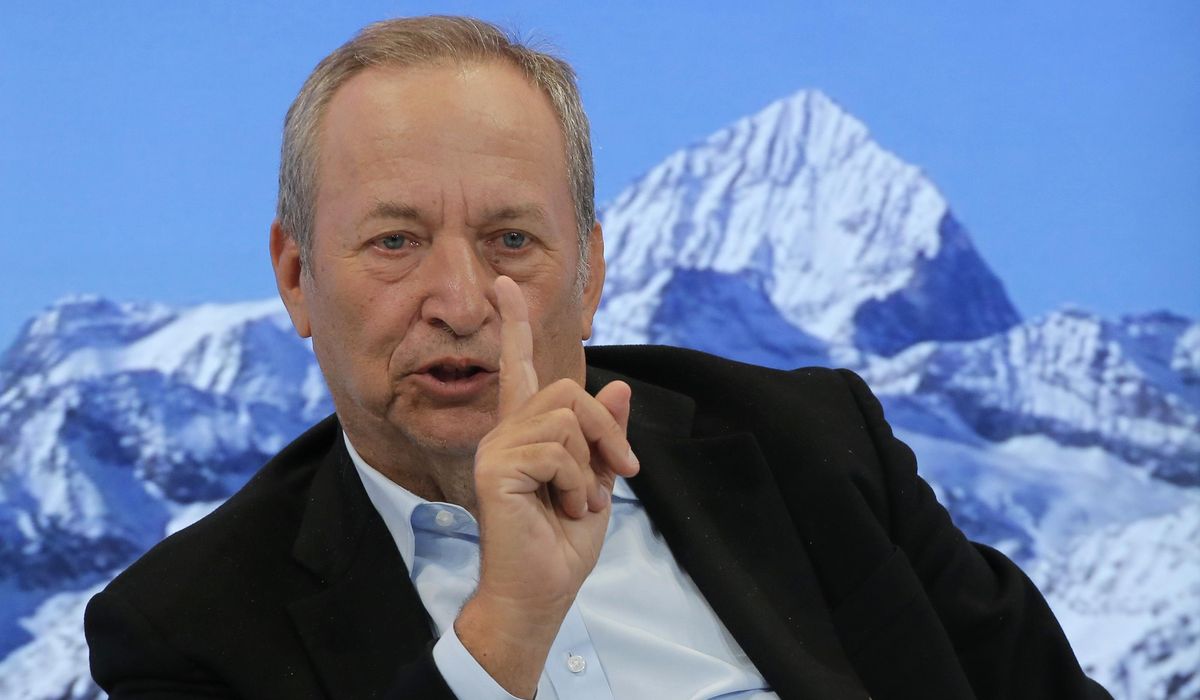
Former Treasury Secretary Larry Summers’ criticism that the Federal Reserve and other central banks are too focused on “woke” social issues reflects a growing concern that policymakers aren’t paying enough attention to inflation.
Mr. Summers, a Democrat, is arguing his point as Senate Republicans try to prevent congressional Democrats and President Biden from pressuring the Fed to install regional directors who would devote some of their duties to climate change and racial equity. The Republicans describe the move as a dangerous case of “mission creep” from the central bank’s traditional role of ensuring maximum employment and price stability.
All 12 Republicans on the Senate Banking Committee fired a warning shot this month at the Fed’s regional offices in Boston and Dallas, which are seeking new presidents.
“Several Regional Federal Reserve Banks, including yours, have embraced politically charged social causes outside of the Federal Reserve’s historical mission and statutory mandate,” the senators wrote to the Boston office. “This mission creep threatens the credibility and independence of the Federal Reserve. The role and purpose of the Regional Federal Reserve Banks is to limit the concentration of power in D.C. and represent the economic interests of their respective regions, not to engage in partisan politics.”
Mr. Summers sounded the alarm this month while speaking to a virtual conference organized by the Institute of International Finance.
“We have a generation of central bankers who are defining themselves by their wokeness,” said Mr. Summers, now a professor at Harvard University. “They’re defining themselves by how socially concerned they are. We’re in more danger than we’ve been during my career of losing control of inflation in the U.S.”
He said the problem is even worse in Europe.
Ludovic Subran, the chief economist at the Germany-based insurer and asset manager Allianz SE, said Mr. Summers chose a “media savvy” way of raising concerns about the expanding role of central banks during the COVID-19 pandemic and the financial crisis of 2007-2008.
“There’s this idea that central banks have overstayed their welcome by extending their mandate,” Mr. Subran told The Washington Times. “What he’s opposing is quite interesting, this idea that the distributional effects on the labor market are more important than price stability. It is indeed questioning a bit: Where do central banks stop? Right now, they’re doing the heavy lifting for every problem, including climate change, including the fight against inequality.”
He said of Mr. Summers’ criticism, “I don’t know if it was right to use that term [wokeness], but what I think is interesting is asking the question about the trade-offs.”
Fed officials last year took a broader approach toward the goal of maximum employment. They pledged to keep the benchmark interest rate near zero even as inflation soared. Central bankers also are increasingly looking at climate change as part of their portfolios.
Dean Baker, co-director of the Center for Economic and Policy Research, said the Fed “is doing the right thing in the face of the hysteria of its critics.”
“The critics want to see it move rapidly to slow the economy so that they can again get good help cheap,” he wrote in the Eurasia Review. “Specifically, they would like to see the Fed end its quantitative easing program (buying bonds and other assets) and raise the short-term interest rate it controls, in order to reduce demand in the economy.”
Mr. Baker said higher interest rates “will slow the economy by making it more expensive for people to buy homes and cars, since they now have to pay a higher interest rate on their mortgages and car loans.”
In prior decades, he wrote, the Federal Reserve Board “was very quick to raise interest rates over concerns about inflation.”
“However, that is only half of the Fed’s mandate in its conduct of monetary policy,” he wrote. “It is also mandated to promote high employment. [Fed Chairman Jerome] Powell has made a sharp break with his predecessors in placing an equal priority on high employment, recognizing the enormous gains to the country from maintaining low rates of unemployment. As Powell has noted, the big winners from low rates of unemployment are those at the bottom end of the labor market — the people who face the most discrimination.”
U.S. consumer prices rose by 5.4% in September from a year earlier, the Labor Department reported last week, equaling the largest annual gain since 2008. Mr. Biden said in July that the high inflation rate was temporary, but some top economists now say it will likely persist through most of 2022.
“These pressures will remain until sometime in the middle of next year,” Gita Gopinath, chief economist of the International Monetary Fund, said on CBS’s “Face the Nation” on Sunday. “And then we should see us returning to more normal levels of inflation towards the end of next year. But this is going to take some time, and we are certainly seeing costs go up. Energy prices have risen again sharply at this time of the year, and that’s going to feed into headline inflation.”
Treasury Secretary Janet Yellen, a former Fed chair, disagreed with Mr. Summers’ assessment.
“I think he’s wrong. I don’t think we’re about to lose control of inflation,” she said on “State of the Union” on CNN. “As we make further progress on the pandemic, I expect these [supply chain] bottlenecks to subside. Americans will return to the labor force as conditions improve.”
She said Democrats’ $1.9 trillion COVID-19 relief package this spring “partially has caused this high demand for goods,” but it has also “been very important in making sure that the pandemic hasn’t had a scarring effect on American workers.”
“It’s given them enough income and support to get through this without — while still being able to put food on their table and keep roofs over their heads,” Ms. Yellen told host Jake Tapper.
Mr. Summers cited several reasons for what he called his “very considerable concern,” including lax monetary policy, soaring housing prices, a record federal budget deficit and excess household savings. He said central banks are not preparing investors for the drastic actions needed to control inflation.
“If those actions come, they’re going to be very shocking and very painful in financial markets,” he said.
Republican lawmakers have expressed mounting concern about the Fed’s focus. In March, Sen. Patrick J. Toomey of Pennsylvania, the top Republican on the Senate Banking Committee, opened an inquiry into “mission creep” at the central bank’s 12 regional outposts.
He demanded information on the Federal Reserve Bank of San Francisco’s research into climate economics.
“A sizable portion of FRBSF research appears to be focused on how matters unrelated to monetary policy impact narrow subgroups of people,” Mr. Toomey wrote in a letter to Mary C. Daly, the president and CEO of the Federal Reserve Bank of San Francisco.
Mr. Toomey and his fellow Republicans said the Federal Reserve banks of Atlanta, San Francisco and Minneapolis are the most active in pushing social justice causes.
The bank of Minneapolis has taken steps to combat racial inequality since George Floyd’s death in police custody last year. The bank, led by Neel Kashkari, who led the Troubled Asset Relief Program under President Obama, has made a public “commitment to dismantling structural racism.”
The Fed has begun including climate change in its financial stability report and has joined the Network of Central Banks and Supervisors for Greening the Financial System. It also has created a committee to evaluate the potential impact of climate change on banks and markets.
“We question both the purpose and efficacy of climate-related banking regulation and scenario analysis, especially because the Federal Reserve lacks jurisdiction over and expertise in environmental matters,” Mr. Toomey and the other Republican senators told the Fed. “This effort is not grounded in science or economics, but is instead a self-fulfilling prophesy: claim there are financial risks with energy exploration and other disfavored investments then use the levers of government — via the unelected bureaucracy — to ban or limit those activities.”








